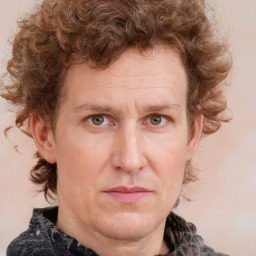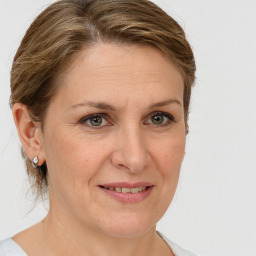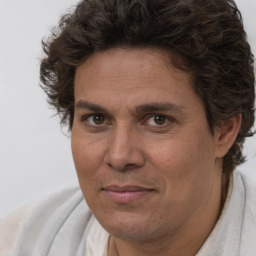- How does plagiarism in nursing education impact the professionalism of future healthcare providers?
- Why is plagiarism considered a serious issue in the healthcare profession, particularly in nursing?
- What technological developments have been mentioned that aim to prevent plagiarism, and why are they insufficient?
Student plagiarism and professional practice
The internet is the biggest and foremost source of information which can be accessed easily to retrieve any type of information. This has made internet most preferred source for collecting information by any person regardless of his/ her age. I have seen that nowadays, various projects in schools and colleges that are asked from students to make are not done in a proper way. They are just plagiarised from various internet sources without any original researches. The plagiarism refers to naming others' work as own. The projects assigned to students has the purpose of increasing knowledge from practical aspect along with enhancement of research work. In case of nursing education I have seen this problem which is more fierce where generally, seniors use to plagiarise or name the work of their juniors as their own. In UK this problem has enhanced at a high level in current situation (Falchikov, 2013). This issue has an adverse impact on various pre and post nursing courses which ultimately degrades the professionalism in students. The plagiarism has become an international issue where I found in UK that various nursing professionals and midwifery councils are forced to maintain the reputation of health and care profession along with corresponding to professional code of conduct. Various discussions that I have read and researched about this issue has acknowledged me that the act of plagiarism has serious implications on professionalism. Thus, it becomes necessary to find a solution for this challenging issue in the current scenario as soon as possible (Roig, 2011).
The basic meaning of plagiarism is to make others' work own without mentioning its credible source anywhere. Because of this, many institutions have considered this act as cheating and also termed it as a serious offence. I have learnt that the act of plagiarism is a big misconduct that should be avoided in any case. It is apparent in the current scenario that many technological developments have been done in this field to restrict the practices of plagiarism. But I found it very unfortunate that this issue is becoming more harder to control as students are using this approach in more careful and sophisticated way. I referred the report of various recent medical councils through which it was discovered that these councils have considered this issue in case of medical students who are currently practising. Various senior associated who are concerned with this issue has left this issue of fraud or plagiarism on individual medical schools (Lampert, 2014). Further, different medical councils have commonly agreed that related authorities must make some new laws in this regard so that this situation can be ameliorated. However, the authorities suggest that individual medical councils and colleges may resolve this issue by constructing some rules by posing penalties as they consider fit for restricting mentioned practice. By reading the article on plagiarism I have come to know that this act is much serious concern in present time which should be resolved as soon as possible.
The reading of articles has asserted that plagiarism can be done through many ways which is most probably comes out of group tasks. There are more possibilities in group works that student do their work as a team and of them may claim the entire work as his own. Similarly, I have noted that most of the times students use to help each other and submit their copied work from friends. Another way is internet where nowadays many sites have come on internet which provide free or chargeable essays on desired topics (Angélil-Carter, 2014). Thus, overall more than 30% students use to copy the material of assignments and researches from internet and many other sources. In this concern, the professor of Singapore has admitted this practice as Alteration and amendment. The problem has affected not only UK but various other countries as well.
As per the various researches and articles, I think that solution to this problem can be developed with the help of moral principles. It is necessary for student s to know about ethics and morality so that they can successfully decide that what is right an d what is wrong. In various professions like nursing, before registration to become a professional practitioner, it is necessary that student develops within themselves assorted ethical and moral principles (Elander and et.al., 2010). The professional qualification of a student should not be just limited to their degrees but it should be extended to honesty and trustworthiness as well. This is necessary as the student who is indulging in plagiarism at any stage of learning and training will not gain the required knowledge. This will be a definite loss for students and also for the institution promoting that student.
By the researches I found many reasons due to which students use to do plagiarism. In context of nursing students, there is a difficult task for them to balance the life between academic practices along with various competencies required in profession. Further, it is also manifested that in this profession that many of the students entering this field are enough matured and married. As per this, it becomes very difficult for them to manage the work of academics and their parental responsibilities (Löfström & Kupila, 2013). Most of the times the work load become heavy which makes enough pressurising for students to manage their work and maintaining quality in it. This becomes some obvious reason which has increased the practice of plagiarism. For this, it is necessary to maintain basic values by the key professionals so that they can develop the moral and necessary values within students whether thay are entering in pre or post registration. In my point of view whatever be the reason of plagiarism, it cannot lessen the impact and result of the act (Heitman & Litewka, 2011). But, it is necessary to remove this issue from the scenario as bounding into a professional code of conduct and posing some penalties will not fulfil the purpose in proper way. Here, the professionals and higher authorities should work as a role model by keeping themselves as the example before students so that they can develop values and ethics. This example of presenting the role model should be presented at each and every stage of assigning work, giving seminars and sharing information. Read about student plagiarism and professional practices in detail.
The ethical concern in this issue lies with honesty which is necessary to be maintained. But involving in plagiarism leads to a kind of fraud whether it is done on any stage (Jiang, Emmerton & McKauge, 2013). In context of health care profession, I think this is a more serious concern as cheating at the time of learning or training may cause a serious results for clients or patients in future. Various practical cases have seen in such scenario where about 50% students have admitted the act of plagiarism in nursing profession intentionally or unintentionally. This act leads a serious damage to the professionalism. Therefore, it is necessary to take some strict steps that can restrict student to execute this act. For enhancing their professional degree, students use to indulge in act of cheating which if discovered may lead to serious consequences. I think, for this concern, it is necessary to develop changes in current practices so that students may develop their interest in learning instead of cheating (Kift, Nelson & Clarke, 2010).
We tend to help you at every step regarding Academic Assistance
Get your Assignments Now!
To restrict the practice of plagiarism, it is necessary to develop new policies and norms necessary to confine practice of plagiarism. I also recommend that the institutions on individual basis and various councils commonly develop some rules in this regard so that students can maintain transparency in their work. The institutions may make a formal and common meeting among themselves to discuss the matter. The high professionals should make students to understand the necessity of fairness in their work in present and future context as well. The strict implementation of penalties in the case of plagiarism should be posed which should be detected from highly efficient software (Xiao, 2010). In addition, the development of ethical and moral concerns among students will be the most useful tool for restricting the practice of plagiarism.
By summarising the entire study, I found that the plagiarism is a serious concern that should be solved as soon as possible. It is also evident that students who are under training in the nursing profession also use to indulge in cheating which leads to fraudulent practices with clients. For solving this problem it is necessary that the higher authorities set examples before students and develop the sense of values and ethical behaviour so that work can be maintained without any plagiarism (Evering & Moorman, 2012)..
Read More - Personal Statement Writing Service
References
- Angélil-Carter, S. (2014). Stolen language?: Plagiarism in writing. Routledge.
- Elander, J. and et.al., (2010). Evaluation of an intervention to help students avoid unintentional plagiarism by improving their authorial identity. Assessment & Evaluation in Higher Education. 35(2). 157-171.
- Evering, L. C., & Moorman, G. (2012). Rethinking plagiarism in the digital age. Journal of Adolescent & Adult Literacy. 56(1). 35-44.
- Falchikov, N. (2013). Improving assessment through student involvement: Practical solutions for aiding learning in higher and further education. Routledge.
- Heitman, E., & Litewka, S. (2011, February). International perspectives on plagiarism and considerations for teaching international trainees. In Urologic Oncology: Seminars and Original Investigations (Vol. 29, No. 1, pp. 104-108). Elsevier.
- Jiang, H., Emmerton, L., & McKauge, L. (2013). Academic integrity and plagiarism: a review of the influences and risk situations for health students.Higher Education Research & Development. 32(3). 369-380.
- Kift, S. M., Nelson, K. J., & Clarke, J. A. (2010). Transition pedagogy: a third generation approach to FYE: a case study of policy and practice for the higher education sector. The International Journal of the First Year in Higher Education. 1(1). 1-20.
- Lampert, L. (2014). Combating student plagiarism: An academic librarian's guide. Elsevier.
- Löfström, E., & Kupila, P. (2013). The instructional challenges of student plagiarism. Journal of Academic Ethics. 11(3). 231-242.






















